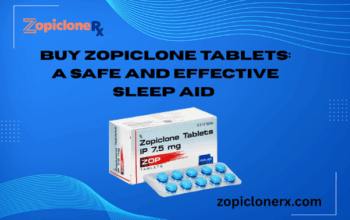The Malaysian health system relies on voluntary, non-remunerated blood donors for the majority of its blood supply. Following the implementation of the movement control order (MCO), blood supply at the National Blood Center and other blood banks in the country decreased by 40% from the previous year, from 111,328 bags in May 2018 to 67,135 bags in May 2020. In May 2020 (Conditional MCO) and June 2020, relaxation measures were implemented to replace the MCO (Recovery MCO). Following that, blood demand increased as elective surgeries resumed and the number of motor vehicle accidents increased.
During the Covid-19 outbreak, blood procurement was difficult not just because of the SARS-CoV-2 virus, but also because of the mobility limitations order and social distancing measures. The transfusion medicine department at Raja Permaisuri Bainun Hospital encountered various obstacles in maintaining an optimal level of blood inventory, just as it did in other settings. Between March and August of 2019, 14,486 blood bags were collected, but only 11,895 bags were collected in the same period in 2020, a reduction of 18 percent. While blood bank-based collections increased by 1.6 percent, mobile blood drive collections decreased by 23% [2019: blood bank-based: 1763 units, mobile blood drives: 12,723 units; 2020: blood bank-based: 2097 units, mobile blood drives: 9798 units]. Nonetheless, due to fewer elective cases and trauma-related transfusions, total blood usage decreased over the same time period, from 9936 units in 2019 to 7888 units in 2020. The number of blood donation campaigns had reduced significantly as a result of the closure of educational and employment facilities.
In all six of the World Health Organization’s regions, the COVID-19 pandemic was estimated to have caused a 20–30 percent reduction in blood supply. It was also noted that the donor attendance rate in the state of Washington in the United States of America (USA) had fallen by 10–30 percent, and that the donor attendance rate at Canadian Blood Services had fallen by 30 percent. This tendency, however, was partially offset by a fall in demand for blood, which occurred as a result of a decrease in elective surgery and medical treatment during the early stages of the pandemic. Blood supply levels in the United States have dropped to their lowest levels since the outbreak began, and blood drives have continued to be canceled as many businesses, schools, and other organizations remain closed. Blood supply and donor attendance at blood bank-based collection centers decreased by 395 percent after imported cases of COVID-19 were detected in Saudi Arabia. On the other hand, blood demand decreased by 217 percent over the same period. The status of blood collection in Malaysia has not been satisfactory despite various promotional activities, with only 57 percent of the target achieved. Moreover, during the enforcement of the movement control order (MCO), blood supply at the national blood center and other blood centers throughout the country has decreased by 40 percent compared to previous years. As a result of the COVID-19 pandemic, the number of whole blood donors in Zhejiang province, China, decreased by 67 percent, and the success rate of recruiting for donations decreased by 60 percent, both of which are significant reductions.
In Malaysia, however, the Ministry of Health received 22 blood plasma packs from former COVID-19 patients for treatment and study. Mauritius employed this strategy in the present pandemic in the African Region, following the government policy to use serum plasma treatment for critically ill COVID-19 patients.
VACCINATION FOR COVID-19 and BLOOD DONATION
- What are the potential negative effects that I should be aware of?
Following immunization, you may suffer side effects such as pain, redness, swelling, exhaustion, headache, muscle ache, fever, chills, vomiting, diarrhea, and joint pain, as with other well-known vaccines. They are common and expected as a natural response of the body. These adverse effects normally go away within a couple of days. If you’re feeling poorly or worried about your health, you should see a doctor.
- How do I supply the blood bank with the necessary information?
As part of the donation pre-screening procedure, donors must disclose information regarding their vaccinations, including the date of immunization, vaccine brand, and any side effects. Click jenis vaksin covid 19 to find out more about the vaccines.
- Why is the live-attenuated virus vaccination subject to a lengthier waiting period?
The live-attenuated vaccination has a 4-week waiting period due to patient safety concerns. This is because blood from a freshly vaccinated donor could include an infectious agent that, although not dangerous to the donor, could pose a risk to patients who are immunocompromised or immune-suppressed, such as cancer patients.




